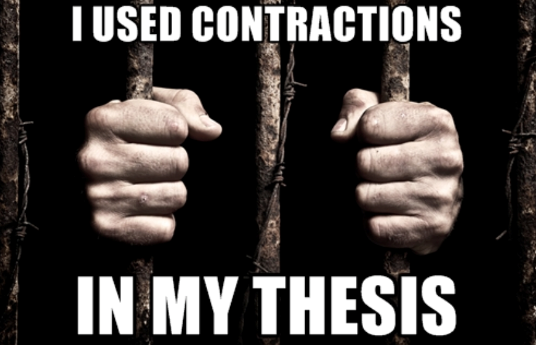I make my living with words.
I decorate my house with words.
Okay, so my wife decorates our house with words.
I love to surround myself with words in my office or study.
I’ve been known to write or speak a few words. Okay, a lot of words.
Words are fun and useful. Where would we be without them? Not only do they communicate, but your choice of words reveals a lot about you – sometimes things you may not want someone to see or think.
Because I also work in the world of education, I see literally thousands of words every week. Sometimes I see words from students that I have to stop and look up in the online dictionary. For example, not long ago I had a student who loved to use the word “ken.” For all I knew, she was using a man’s name. Turns out, “ken” means “know” – and every single time you would have used the word “know,” she used the word “ken.”
Now I ken. And you ken, too.
Anyway, in all the myriad of word possibilities, I have found seven words you should never use in an academic paper.
Only seven? Far as I can tell.
All seven? Definitely. Use any of these and they say some things about you that you may not want to be said.
Now what’s tricky about these seven is that they’re common, ordinary words that you could use in conversation, blogs or magazine articles, fiction or popular writing, and they’re actually expected and complimented. Use them on a research paper and someone will express their displeasure.
(Shhhh! What’s that falling-in-a-hole sound I hear? It’s your grade, sinking into the abyss, because you used one of the Seven Words You Can Never Say in an Academic Paper.)
Okay here they are… and if you don’t write academic papers (hey… who was that that said “hallelujah!”?), share this with somebody who does. Or file it away for a couple of years, for when you go back to school. [click to continue…]
{ Comments on this entry are closed }


